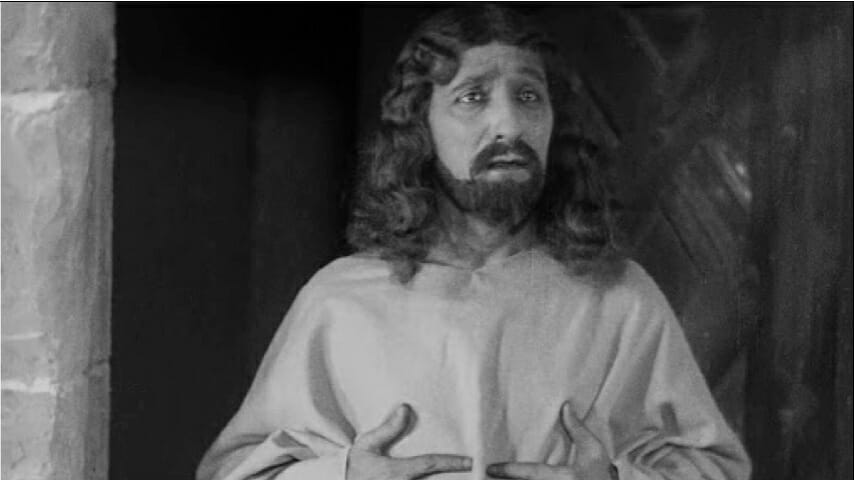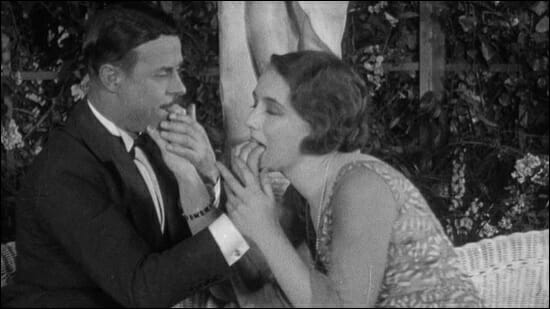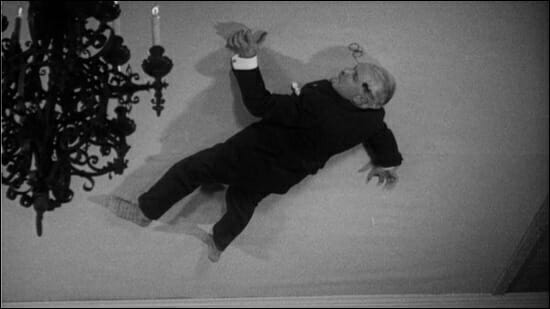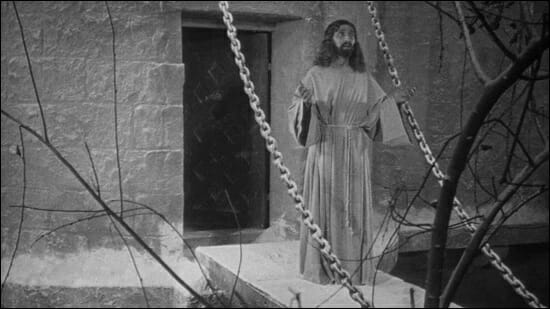Gap Year: L’Age d’or (The Golden Age) (1930)
Buñuel and Dalí’s surrealist satire drove actual fascists to riot.

So that he can go on about it constantly at dinner parties (that he’s forbidden from attending—social distancing!), Ken Lowe is taking a gap year! Join him for this monthly feature throughout 2020, seeking out the essential, the classic, the weird, and the infamous films of a foreign country. This year, the spotlight is on France.
You have enemies? Why, it is the story of every man who has done a great deed or created a new idea. —Victor Hugo
Film is art, and that it is art has not been a subject for debate since before any of us were born. Art makes you feel things, and that means some art makes enemies. It’s a realization the videogame industry is coming to slowly as its leaders release games that are about men in uniforms killing folks under government orders and then turn around and plead ignorance of any “politics” in their games.
And just like videogames, film was once a medium that originated as something of a sideshow attraction or a magic trick. By the time the two Spanish filmmakers Luis Buñuel and Salvador Dalí got together in Paris to envision L’age d’or, however, there was little debate over the fact film could be an artistic endeavor. By 1930, the 26-year-old Dalí had become part of the Surrealist artistic movement, been disowned by his father, and already collaborated with Buñuel on their more famous endeavor, Un Chien Andalou (1929), known to most folks as “the one where somebody slices their own eyeball on camera.”
L’age d’or was Buñuel’s first feature-length film, his first with sound, a prominent example of the subversive Surrealist movement sweeping Europe, and an inducement for right-wing zealots to riot in theaters and burn museum pieces. If that isn’t art, what is?

After opening with creepy, documentary-like footage of scorpions that includes a rat getting stung, L’age d’or follows a company of dejected Majorcan soldiers barely surviving during an invasion. The victorious invaders colonize the island and an important-looking official starts lecturing an assembled crowd of civilians on how great the island’s soil is for making cement.
The film finally finds its main subjects in a man (Gaston Modot) and a woman (Lya Lys) who are discovered fornicating in the mud near the conquest ceremony. We learn, after he’s dragged away by suited authority figures, that he in fact is a Majorcan with supreme diplomatic immunity, sent on a mission of peace. We also learn—as he stamps on insects, kicks blind old men, and leers at every picture of a woman—that the only thing he wants is to have sex with his ladyfriend, and anything and anyone in his way means less than nothing to him, his mission included.
The central portion of the movie, which follows The Man’s misadventures and plumbs the depths of his shocking pettiness, is the closest thing the movie has to a narrative through-line. It still finds time to make delightfully weird digressions, as when the movie briefly follows The Woman as she tries to prepare a party in her palatial estate and must inexplicably evict an actual cow from her bed.
The Man is able to shake off the men arresting him when he presents them with his diplomatic paperwork, and immediately we flash back to his induction ceremony, where the Majorcans vest him with authority and all their hopes for peace. When we cut back to him, he hails a cab, kicks aside a blind man who was trying to hop aboard, and rushes off to try to rejoin The Woman.
At the party, they are kept apart by their parents. (Her father is an immaculately dressed older man with flies all over his face, and nobody says anything.) The well-to-do family’s servants aren’t doing much better: One maid falls dead into the main area of the house as a gout of flame erupts from the kitchen, to no reaction. Another servant outdoors is playing with his son, but when the kid annoys him, he gives him both barrels of his shotgun—it’s unclear whether the police are going to do anything about it, but the assembled bluebloods spare a moment to gawk and tsk-tsk.
-

-

-

-

-

-

-

-

-

-

-

-

-

-

-

-

-

-

-

-

-

-

-

-

-

-

-

-

-

-

-

-

-

-

-

-

-

-

-

-










































